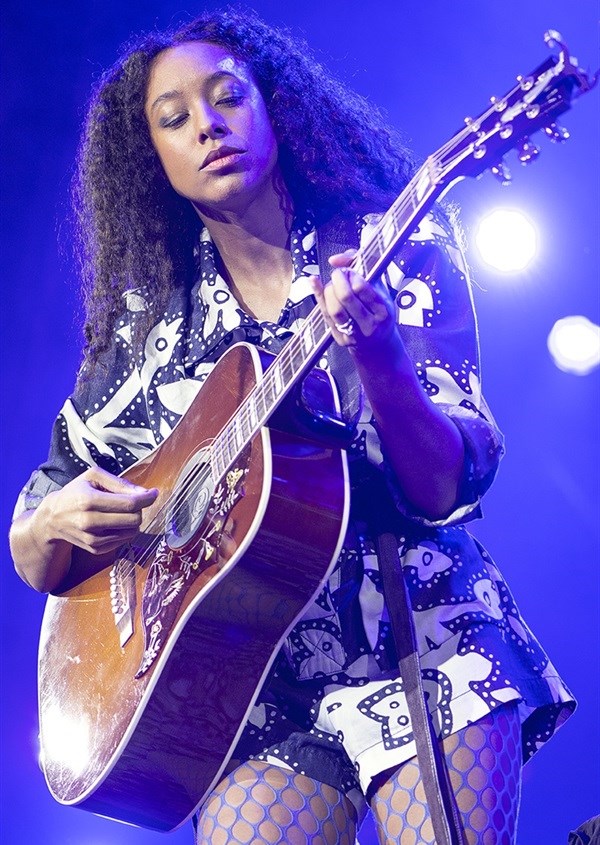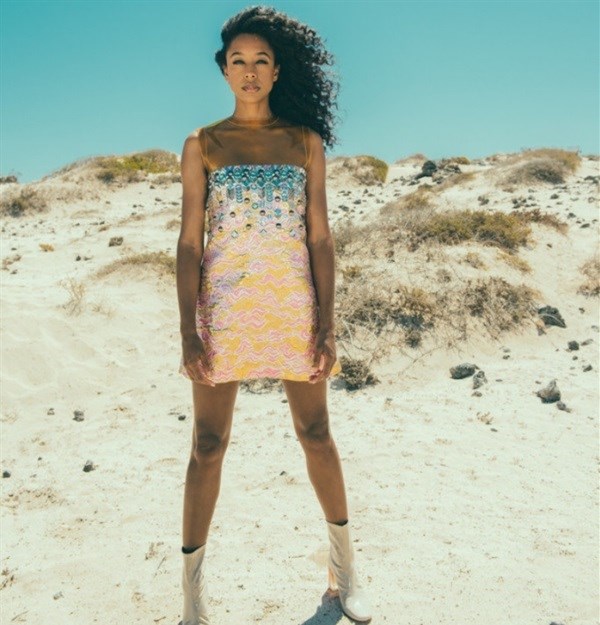
Top stories





Marketing & MediaWarner Bros. was “nice to have” but not at any price, says Netflix
Karabo Ledwaba 1 day

More news

Logistics & Transport
Maersk reroutes sailings around Africa amid Red Sea constraints

















It was Bailey Rae’s third time in South Africa, the first being to record the video for Put Your Records On in the Western Cape’s Winelands, and the second to perform at Nelson Mandela’s 46664 concert in 2007. But CTIJF was her first time taking to the stage in the Mother City.
“I'm very happy and grateful to be back here, it's such beautiful city. It’s always great visiting a place with so much diversity and energy, and music and fashion. And the people are incredible,” she said during an intimate press conference ahead of the festival.
The performer credited her travels as a rich source of inspiration for her music.
“One of the big influences on me has been nature – just being able to be out and about in the cities or in the countryside all over the world. I've been lucky in that the more music I do the more places I’m invited to play, and those experiences impact me. I like to meet the people and experience the music scene. It prompts me to think about music in a new way.”
A listen to Bailey Rae’s three studio albums will prove the transformative nature of her work. Her eponymous debut album released in 2006 was sunny, poppy and soulful while the follow-up The Sea was more guitar-based, indie and reflective. Her latest record, The Heart Speaks in Whispers, released in 2016, she says has a bit more synth, and is expressive and more experimental.
“As an artist it was really important for me after my first record to feel like I could keep expanding my sound. Sometimes after people produce records and find success there's a fear that can kick in where they think 'everybody knows my music as this so I have to continue with the same style because that’s where the guarantee is.'
“But with my second album, I almost wanted to do something in response to my first record. If I’m going to keep creating music it has to remain interesting and challenging for me. I really want to be able to be myself. I think my evolution in music has been about wanting to maintain freedom in terms of what I can record and the styles I can use.”
Despite the transitory sound of her records, the thread connecting each chapter of her work is that they’re all very authentically Corinne. At the heart of this lies the fact that she’s so intrinsic to the creation process. No one-trick pony, Bailey Rae doesn’t only wear the hat of vocalist and songwriter, but also that of musician and producer – working out of her own studio in her hometown of Leeds.
“It's been important for me to find my own space in music. As a woman especially, it's been important for me to say yes, I'm a singer and songwriter, but I’m also a musician and I arrange and produce.
“I've been encouraged to work with people with the understanding that they'll do the music and I do the singing. I've never really enjoyed working like that because I just think songwriting is such a brilliant journey and I love making music from scratch.
“Part of the work that I've been doing in the last ten years is becoming a producer and building my own studio and working out how to use the various tools, and how to edit and do arrangements. I'd rather do something that's less polished and less accomplished, but more personal."
I think there's more and more room to hear individual voices in music, rather than have work that’s perhaps more polished, but also very generic.Bailey Rae may be polishing her production prowess, but she said she got into production almost by accident, mostly because of her strong sense of what she wants her music to sound like. Songwriting and singing remain her first loves.
“My main love is still standing in front of a room of people and singing songs that I've made up. I really enjoy sitting with the mystery of writing songs… how you don't know what it's going to become – an instrument can come in, something can come out of my mouth that I didn't know I was thinking or feeling, and the chords can take me in an entirely new direction.”

Seeing herself as a member of the outsider culture in the UK, Bailey Rae identified with the alternative scene and started an all-girl indie band called Helen when she was 15. The band’s music was inspired by Kurt Cobain and Nirvana, but also by female-fronted rock outfits like Veruca Salt and L7.
"It was the first time I'd seen women with guitars. They were kinda sexy – but feminist. I wanted to be like that, at the front of something."
A voracious reader and lover of language, she went on to study English Literature at the University of Leeds, which she found useful in her music career. “It’s important as a songwriter to read a massive volume of other people's writing. I love to read. I love to read fiction as a way of understanding truth,” she explained.
It was in this university setting where Bailey Rae befriended jazz musicians and became inspired by not only their music, but their way of living. “They were this Bohemian group of people who didn't feel the need to buy a house or get a proper job straight out of university. They just wanted a lifestyle that facilitated their music.
“So, after university, I worked in a bar, I worked in a café and I worked cleaning houses because I really just wanted to have enough money to not feel locked into a job so that I could be an artist.
Bailey Rae’s artistry has received acknowledgement at the Grammy’s, Brit Awards and the Mobo Awards. But for the British songbird, creating music for mass appeal and award wins is not the primary objective.
I just want to make music that comes from my heart and from my experience."I think as people we have so much that unites us. Instead of thinking about what will be popular, if you write authentically and honestly there's bound to be millions of people feeling the same way simply because we're all interconnected and we're people sharing similar experiences on this planet.
“Instead of fixating on remaining relevant, I think what I strive for is to do something that's authentic and to follow my intuition, which is the only thing you can rely on in the end.”
